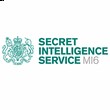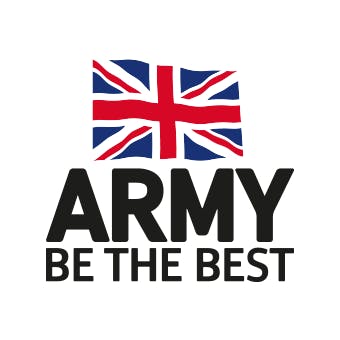Armed forces operational officer
Armed forces operational officers command, lead and inspire troops on the front line of battle
Operational officers in the armed forces lead the fighting arms. You'll direct and operate technically advanced fighting systems on land, at sea and in the air and command people on the front line of battle. You can work in one of the armed forces:
- British Army
- Royal Air Force (RAF)
- Royal Navy (including the Royal Marines)
Your responsibilities cover the training, fitness, operational effectiveness and welfare of everyone in the unit, so that they reach and maintain a high level of competence and readiness to fulfil their defence and peacekeeping purposes.
Your primary responsibility in operations, which is often dangerous, fast-moving and chaotic, is to command, lead and inspire service personnel.
Responsibilities
As an operational or combat officer in the armed forces, you'll need to:
- lead, command and manage a team of fighting specialists, often in difficult and dangerous conditions
- develop the skills of your team to a high level of competence and readiness
- take responsibility for the welfare, morale and motivation of subordinates
- communicate effectively with your unit, as well as with other colleagues and professional and community groups, both orally and in writing, through briefings, operational reports and presentations
- prepare or modify operational strategies and plans
- allocate equipment, personnel and resources effectively to achieve objectives
- keep ships, aircraft, vehicles, weapons and other equipment operational
- train new recruits in basic skills and instruct personnel of other ranks and prepare them for promotion
- assess the effectiveness of training
- identify and plan to meet new objectives and motivate others to achieve these objectives
- take responsibility for your own personal and professional development.
Salary
- The starting salary for officer cadets in all three armed services is £31,305.
- After successful completion of initial officer training, salaries increase to £37,425 across all armed forces.
- Salaries are rank-related, and you can earn more by progressing through the various ranks and seniorities.
The armed forces also offer benefits such as six weeks' paid holiday every year, an excellent pension scheme, free health and dental care, and subsidised travel, food and accommodation.
Figures are intended as a guide only.
Working hours
When on operations, you will be working in a challenging environment where long hours and difficult conditions are to be expected.
It may be possible to work part time temporarily and/or restrict your separation from your home base (from three months to three years) under the armed forces' Flexible Service arrangement.
What to expect
- You'll work in UK bases and stations where security restrictions operate, but there's also the possibility of prolonged periods abroad on overseas bases and on exercises and operations all over the world (both on land, in the air and onboard navy vessels).
- Expect to rotate jobs and relocate every two to three years. The extent of relocation, travel and family separation will depend upon the service and posting, but support services and social and recreational facilities are good.
- The armed services are equal opportunities employers and promote equality, diversity and inclusion. All posts are equally open to men and women.
- As an officer, you will be given a lot of responsibility early in your career. The work is challenging and varied. At times it can be stressful, dangerous and involve operating in adverse conditions.
- Travel within a working day, absence from home at night and overseas work or travel are all frequent.
Advertisement
Qualifications
All three armed forces recruit graduates as officers and provide initial officer training and a continuation of technical and professional training.
Graduates of any subject are considered as officers for operational or combat roles as leadership qualities and the suitability for service life are more important than degree subject.
However, graduates in science or engineering are particularly welcome in operational or combat roles, especially flying, weapons and artillery, the armoured brigade, and transport and logistics.
In general, all three forces will consider applicants for officer training with a minimum of 72 UCAS points (64 for the RAF) and five GCSEs at grade 4/C or above (or Scottish equivalents), including maths and English language.
Generally, you must be a UK, Commonwealth or Irish citizen and have been resident in the UK or Ireland for five years prior to entry to the armed forces. However, requirements vary slightly between the different branches and roles, so you should check before applying. Age limits also apply.
All three services offer student bursaries or sponsorship, but amounts vary according to the subject you are studying and the needs of the service. University Service Units also pay students who join and take part in activities.
The selection process varies for each service, and high standards are required at the selection board and throughout basic training. Whichever service you apply to join, selection is likely to include:
- an application form
- an initial interview to find out if a life in the armed services would suit you
- medical assessment
- aptitude tests
- fitness test
- an interview/selection board.
At the interview/selection board, recruiters will be assessing your leadership potential and motivation, as well as your teamwork, communication and problem-solving skills.
Make sure that you have researched the branch of the armed forces you are applying to and understand which part you want to work in. You must also be aware of current affairs, particularly in relation to defence and society.
Check individual armed forces websites for further details on applying and entry requirements. Information is also available from university liaison officers (ULOs) and local armed forces careers offices.
Skills
You'll need to have:
- excellent communication and interpersonal skills
- the ability to lead and motivate
- the ability to work effectively as a member of a team
- an enquiring mind
- problem-solving and analytical skills
- the ability to remain calm under pressure
- the confidence to make decisions in high-pressure and sometimes dangerous situations
- excellent organisation and administration skills
- self-motivation and flexibility
- the ability to learn quickly
- attention to detail
- the ability to work on multiple tasks at the same time
- a sense of adventure
- a good level of physical and mental fitness.
For most branches of the armed forces, there are also medical and eyesight requirements.
Advertisement
Work experience
Pre-entry work experience is not needed, but some training can be helpful with cadet and/or reserve forces, as well as:
- University Air Squadrons (UAS)
- University Officers' Training Corps (UOTC)
- University Royal Navy Units (URNUs).
It's also possible to do a 12-month army officer internship through the Army Internship Programme. You can do this either during or after university.
University Liaison Officers (ULOs) can give you up-to-date information, and offer advice on vacation training, cadetships and familiarisation visits.
Find out more about the different kinds of work experience and internships that are available.
Employers
There are three employers within the armed forces:
- British Army
- RAF
- Royal Navy (including the Royal Marines).
The British Armed Forces are managed by the Defence Council of the Ministry of Defence (MoD). The purposes of each service are the same:
- to protect the United Kingdom and its dependent territories
- to fight the nation's enemies
- to prevent conflict
- to deliver emergency humanitarian relief.
Much of the time, the armed forces achieve these aims through membership of alliances, particularly the North Atlantic Treaty Organisation (NATO). However, unilateral responsibilities may mean that they act alone at times and therefore need to be equipped and trained for all aspects of modern warfare.
The UK's membership of the United Nations (UN), and its permanent place on the Security Council, may also call for the use of armed force in defence of international security or in support of humanitarian and peacekeeping initiatives.
In addition, the forces have an important diplomatic function in representing Britain overseas with goodwill visits, and in providing training for other countries' armed forces, both in the UK and abroad.
An officer's appointment in one of the services of the armed forces might involve working with the other services, the UN or NATO. Officers might also work at MoD headquarters.
Look for job vacancies at:
You can also enquire at local armed forces recruitment offices or with ULOs for opportunities.
Professional development
Each of the armed services provides initial officer training (IOT) followed by specialist professional or technical training.
The IOT training you'll receive in the armed forces includes military, physical and academic training and is designed to build your leadership skills. You'll be taught about military organisation, defence issues, current affairs and management skills, and will develop skills in strategy, negotiation, communication and decision-making.
- Army officers begin with a commissioning course at the Royal Military Academy, Sandhurst, which lasts 44 weeks.
- In the RAF, IOT lasts 24 weeks and takes place at RAF College Cranwell, Lincolnshire.
- In the Royal Navy, IOT lasts 30 weeks and takes place at Britannia Royal Naval College, Dartmouth.
- If you want to be a Royal Marine, you will need to complete IOT at the Commando Training Centre Royal Marines (CTCRM), Lympstone.
Once you have completed your IOT training, you will start your specialist professional or technical training before moving into your first role.
Continuing professional development (CPD) and training are features of a forces career, with opportunities to gain qualifications and professional accreditation with civilian professional bodies.
Career prospects
There are great opportunities for advancement as an operational officer in the armed forces. You'll have a high level of responsibility early on in your career and will have the opportunity to continue developing your skills as you progress.
After initial officer training, you'll be posted to your chosen regiment or corps. This will be to a ship, squadron or station where you'll undertake specialist command training before assuming your first command.
In the army, you will develop your strategic planning and decision-making skills as your career progresses and may specialise in a particular area such as mortar, reconnaissance, intelligence or communications, for example. As an officer, you can usually expect to reach the rank of captain after three years' commissioned service.
In the navy, you will be making key strategic decisions and can rise through the ranks from officer of the watch into roles such as principal warfare officer, executive officer or commanding officer.
In the RAF, there are opportunities for promotion to flight lieutenant, squadron leader and then more senior roles. With promotion, your responsibilities will increase, in terms of both numbers of personnel and quantities of equipment.
For all armed services, promotion is typically into increasingly senior staff posts. Advancement involves increased responsibility and may lead to a command and staff training course at the Joint Services Command and Staff College at Shrivenham, as preparation for a senior command or managerial appointment.
It's usual, as your career as an officer progresses, to attain academic qualifications and professional accreditation.
Upon retirement from the armed forces, there are opportunities to work in management or consultancy or to take on specialist roles in your area of expertise.
Alternative careers
Related jobs and courses




work experience
Technology & Software Engineering Internships
- Beyond Academy (12 other jobs)
- Unpaid
- Various locations


